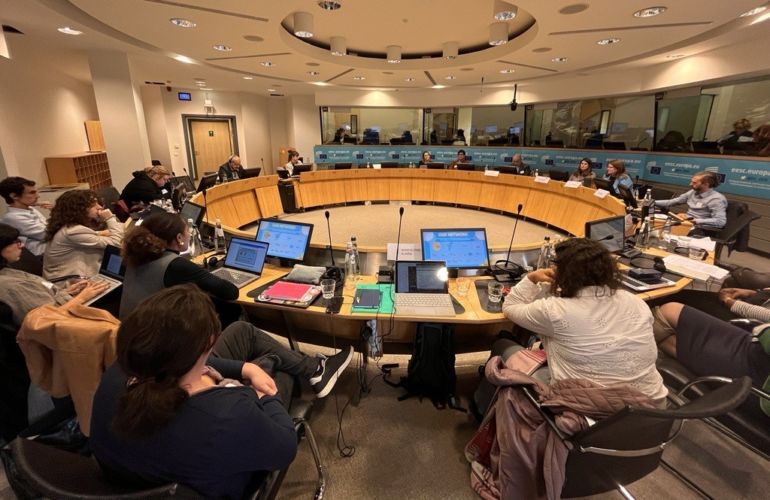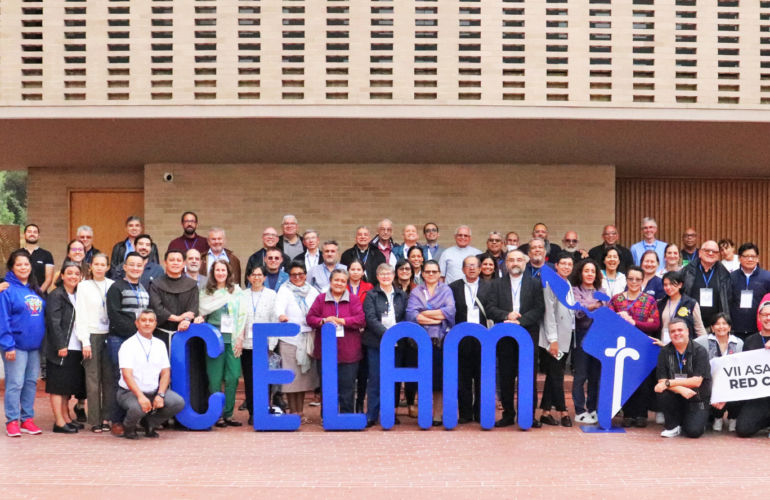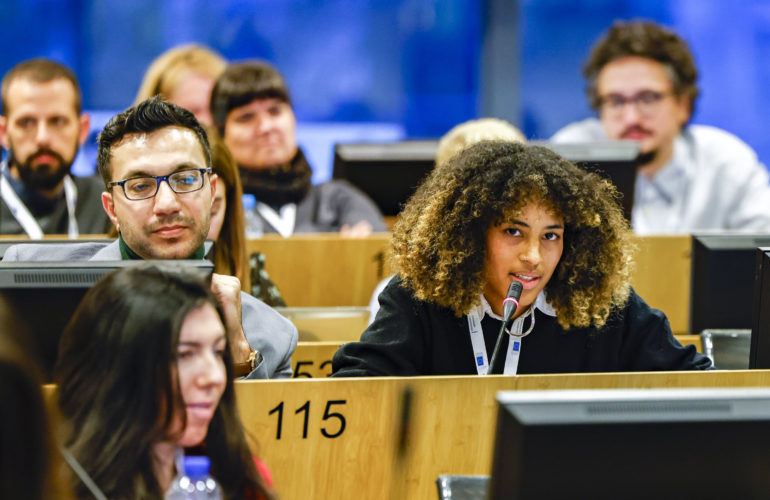Supporting Refugee Integration in Central Greece
An expert deployed by the International Catholic Migration Commission to the UN Refugee Agency in Greece is working to highlight the benefits of integration and bolster the capacity of local authorities to welcome refugees in the country’s central region.
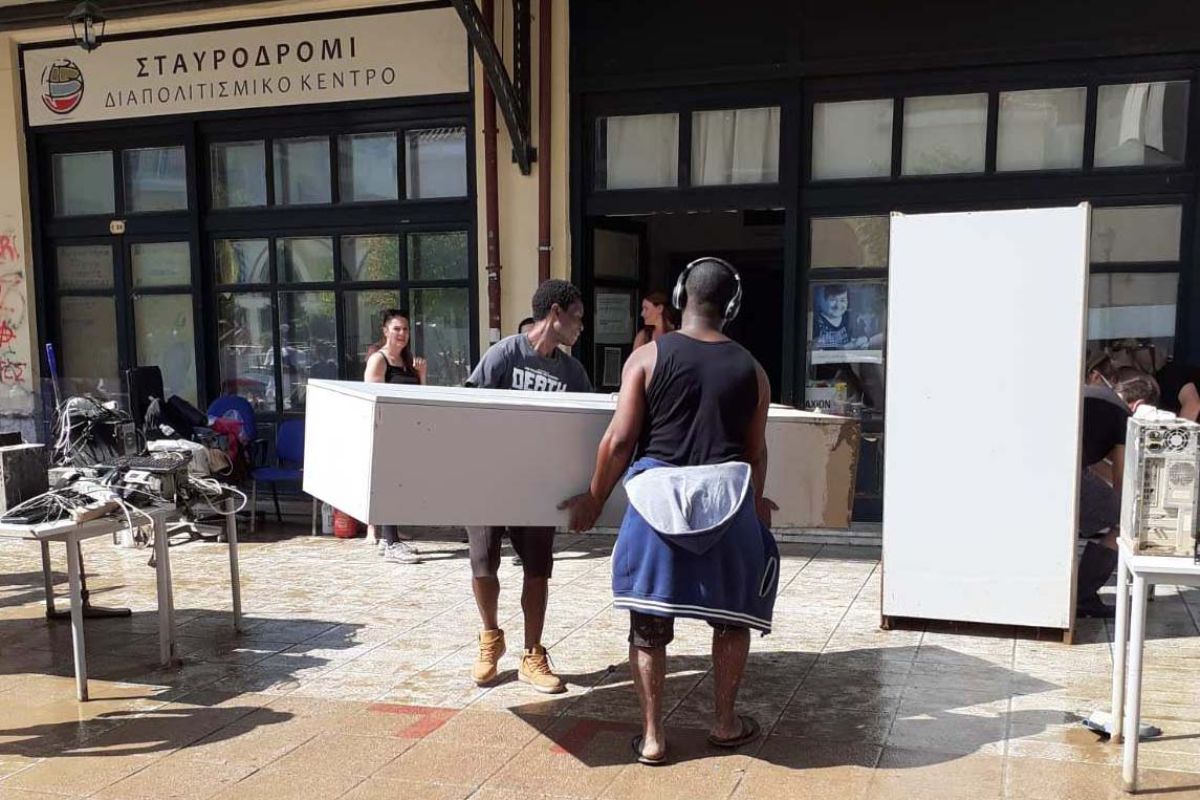
By Terri R. Miller
Liaison (n) A person who establishes and maintains communication for mutual understanding and cooperation.
In the case of Konstantinos Papathanasiou, this bridge function also promotes the integration of refugees and migrants. The liaison expert deployed by the International Catholic Migration Commission (ICMC) provides crucial support to three municipalities in the Thessaly region of Greece as they welcome and integrate uprooted people in cooperation with UNHCR, the UN Refugee Agency, and the Greek government.
Some 2,000 refugees and asylum-seekers were living in the municipalities of Larissa, Karditsa, and Trikala in February in 2022, having been referred there by the Greek Ministry of Migration and Asylum from reception centers to this central part of the country, according to Papathanasiou. On the move as families or men and women on their own, they come from many different countries, including Afghanistan, the Democratic Republic of Congo, Eritrea, Iraq, and Syria.
Many are living in Koutsochero camp near Larissa, others in apartments provided under the ESTIA (Emergency Support to Integration and Accommodation) program. Launched in late 2015 to meet urgent needs of those seeking protection, the program was initially implemented by UNHCR and is now managed by the Greek State.
Support to Move Forward
Municipalities like Larissa, Karditsa, and Trikala are on the frontline of integration and support for refugees and asylum-seekers at the local level in a country still struggling to regain its economic footing following the 2009 crisis, says Papathanasiou. Cities face big challenges when it comes to integration, core among them a lack of resources and supportive policy frameworks.
As UNHCR Greece affiliate staff, Papathanasiou’s role is to help find ways for Larissa, Karditsa, and Trikala to bridge these gaps so that refugees and asylum-seekers in Thessaly receive assistance, and integration is brought into the municipal agenda. “These three municipalities wanted to be supported because they wish to go a step forward for integration,” he says. Though they each have different ways of working, “all have the same goal—to try to integrate refugees and asylum- seekers.”
In some respects, this is familiar territory for Papathanasiou. After working with migrants as a volunteer for over a decade, the Trikala native joined the ICMC–UNHCR Greece deployment pool of experts in May 2016 to support protection activities for new arrivals. Some two years later, he returned to his home region of Thessaly, helping to ensure support for refugees on a further phase of their journey in Greece.
Foundation for Integration
Papathanasiou liaises with the three municipalities around a five-pillar strategy. An important first step is to lay a foundation for successful integration, starting with a strategy tailored to the municipality and a local SEMP or Integration Council of Migrants and Refugees, a municipal advisory body to identify needs and propose concrete solutions for integration.
In addition, the ICMC expert is setting up urban working groups to coordinate the services that various agencies are providing for refugees locally to align them with the direction the municipality has chosen. Capacity-building efforts also include basic training for staff and public officials about legal issues, documentation, and administrative procedures.
Further, the ICMC expert encourages the three municipalities to join global and national communities of practice such as the Cities Network for Integration, which brings together cities and towns throughout Greece to share knowledge and find resources.
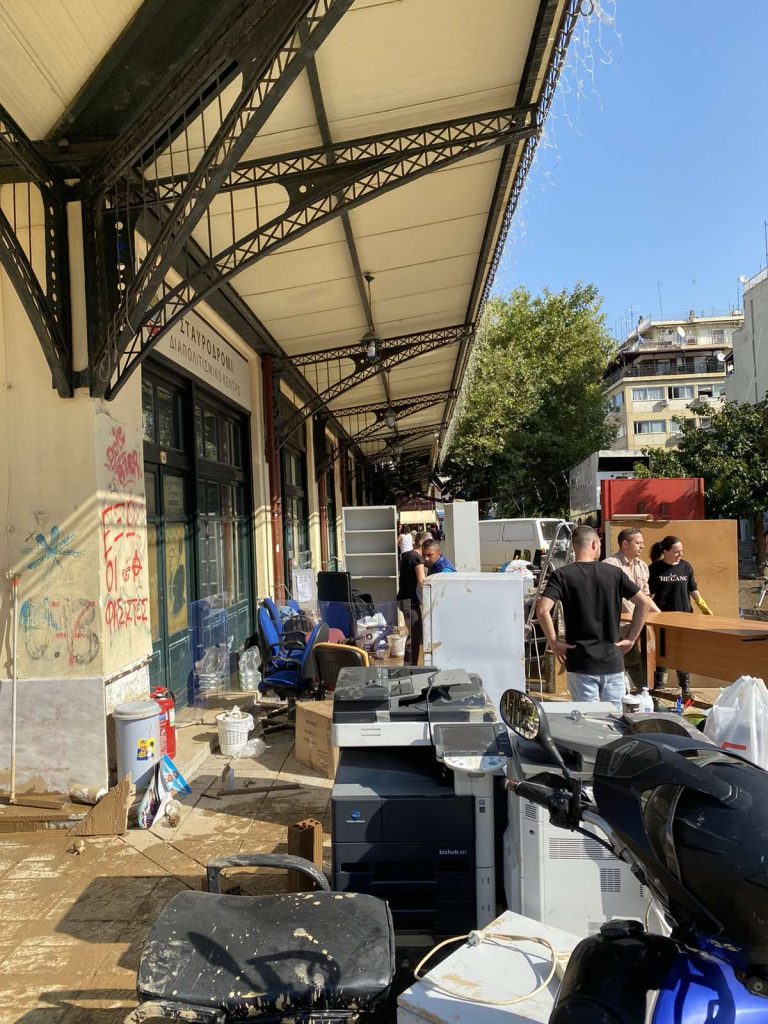
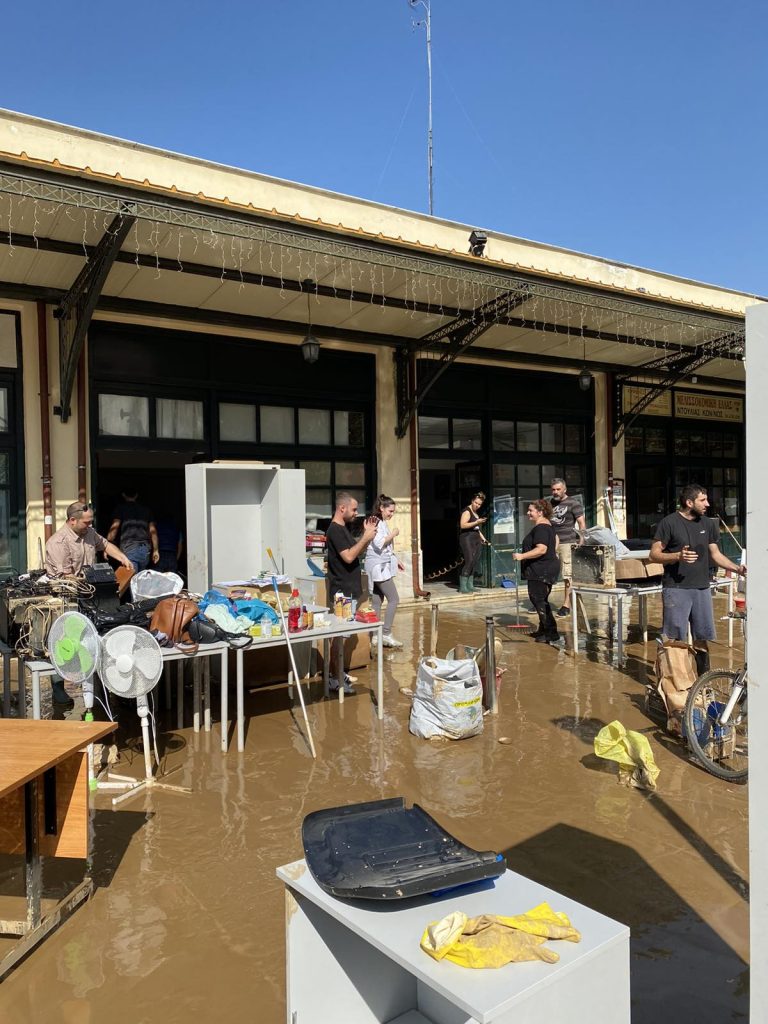
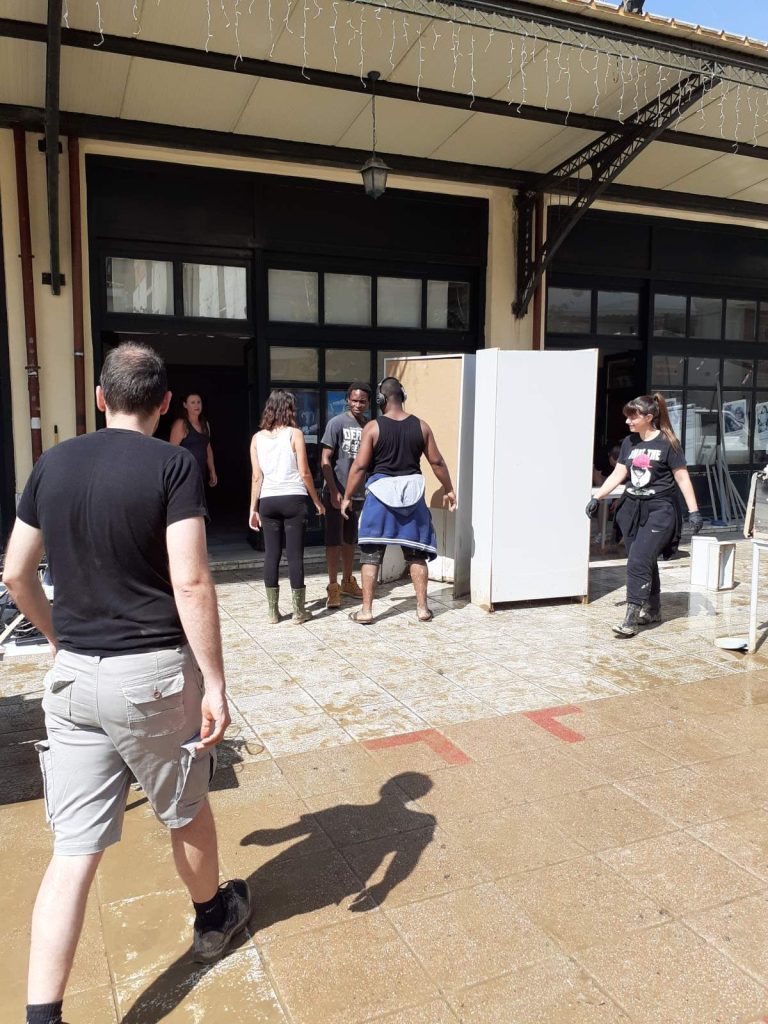
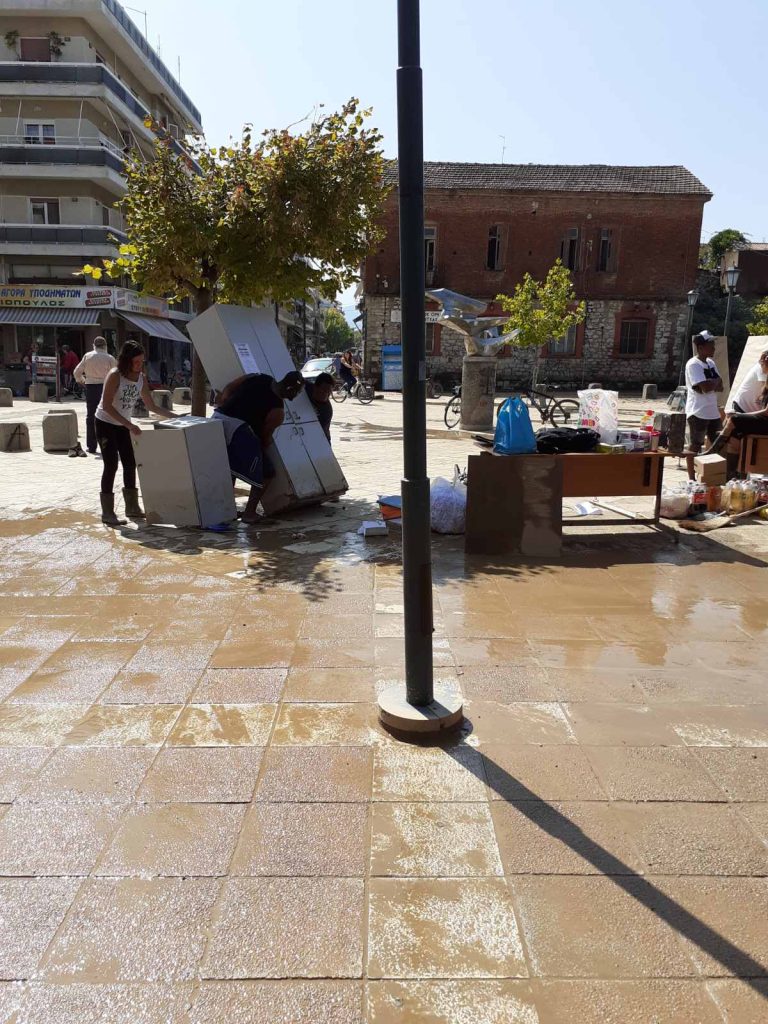
It’s All in the Details
To facilitate access to public services, Papathanasiou works with municipalities to reconfigure local systems to include refugees and meet their specific needs. “We need to reinforce existing structures in order to have more and more people included,” he says.
When it comes to this pillar, it’s all in the details. Current regulations often present obstacles for refugees and asylum-seekers to access services and need to be amended one at a time. Mr. Papathanasiou notes that what might seem like a straightforward solution to a specific issue can mask weeks of patient liaison work.
Integrating refugees at the social grocery of Larissa is a prime example. Through this municipal structure, people in need can receive food, clothing, personal products, and educational and recreational items like books and toys. However, the social grocery’s regulations required a number of documents that refugees did not have. Papathanasiou worked with various local and national authorities to find alternatives and remove these policy barriers one by one over the period of several months.
No sooner were these hurdles cleared, he says, that another challenge presented itself. “We managed to enroll the first refugees in December 2021, but we faced another problem: resources.” The number of asylum-seekers needing support had increased sharply during the transition period of the ESTIA project from UNHCR to the Greek government, stretching the capacity of the social grocery. The ICMC expert worked with fundraising staff and the municipalities to find private donations and run a successful “in-kind” crowdfunding campaign in the local community.
The ICMC expert plays a bridging role as municipalities develop integration programs tailored to their local context with activities such as vocational training and language courses. Finding the necessary funding is closely related, and Papathanasiou works with the local authorities to explore different support channels. One of his pre-pandemic connections resulted in the municipality of Karditsa joining the SHARE SIRA project coordinated by ICMC Europe to strengthen integration in rural areas of Europe.
Bringing integration programs into the municipal agenda can call for a certain amount of advocacy to highlight the ways that refugees contribute to their host communities, according to Papathanasiou. “I stress to municipalities that integration offers an opportunity to recover from the economic crisis that has only deepened with the Covid pandemic.”
Encounter and Advocacy
Such perspective shifts are the aim of the community engagement pillar of the ICMC expert’s work. “We’re finding a way to facilitate encounters between host and refugee communities and establish integration,” he says. In Larissa, Papathanasiou was able to ensure that refugee representatives could participate in the SEMP integration council, and a similar process is underway for Karditsa. Having forcibly displaced people on this key advisory body serves to raise awareness and strengthen social cohesion.
“The Greek community is not hostile [towards refugees], but it is sometimes afraid, hesitant,” he says. Before the pandemic, cultural events like a festival organized together with development agencies two years ago in Karditsa offered more chances to bring both communities to the same table, both literally and figuratively.
In September 2020, Papathanasiou liaised with the municipality to involve almost the entire refugee population in Karditsa in the response to severe flooding after the Mediterranean hurricane Ilanos battered the region, an action that spoke volumes to the Greek community. “[Refugees] are accepted there because [the host community] saw that they helped and were there supporting the people in these difficult times.”
Papathanasiou notes that a key aspect of his role is to support the municipalities to build a bridge with the central government and the regional prefecture of Thessaly. The latter body is the channel for funding from the European Union and thus an important focus for advocacy to move refugee integration needs higher up on the political agenda.
In addition to Papathanasiou in Central Greece, ICMC has deployed five experts to UNHCR to support municipalities in Thessaloniki, Epirus, and Crete in designing and implementing integration plans for the refugee population in these communities. These ICMC experts contribute in a way similar to that used by Papathanasiou to making municipal services, such as language courses or homeless shelters, more accessible to refugees and also to help municipalities raise funds for integration activities and build synergies with the private sector.
Though much of this liaison work takes place in a discreet manner, Papathanasiou plays a crucial role in establishing and maintaining communication between local authorities, other levels of government, and UNHCR, not only for mutual understanding and cooperation but for the integration of refugees in central Greece. “People are in need, and we need to support them.”
ICMC has been deploying qualified experts to operations of the UN Refugee Agency (UNHCR) in Greece since 2010. The partnership provides important support to the Greek asylum and migration management system, ensuring protection to vulnerable people on the move throughout the country.
* Terri R. Miller is a freelance writer and communications consultant.
